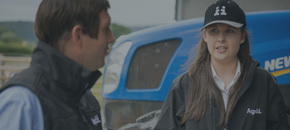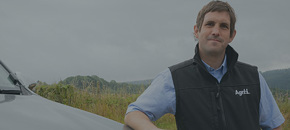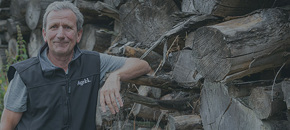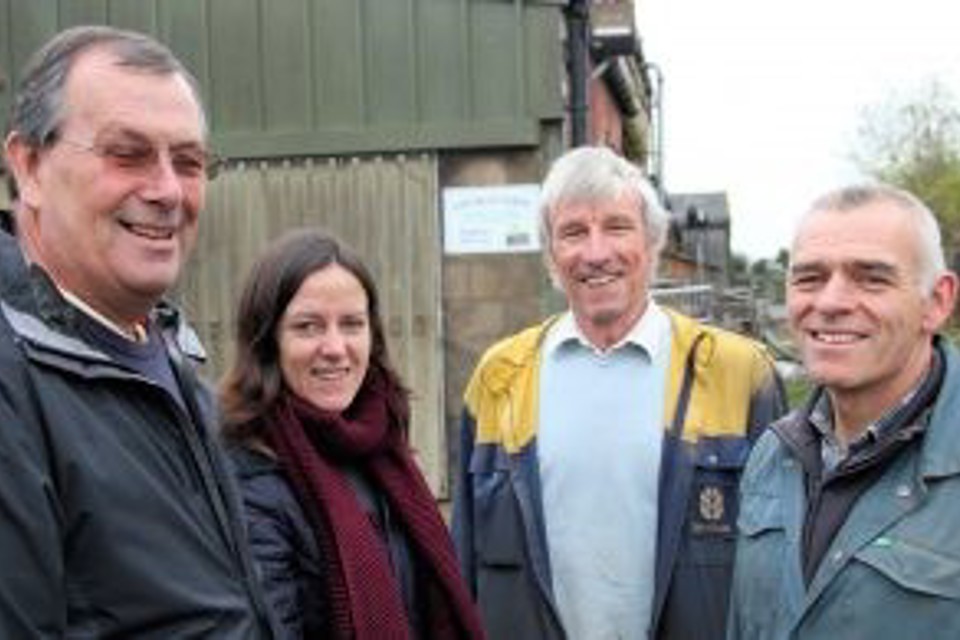
Mixed recipe for sustainable success
Case Study - 14.12.17
Norton family proves small farms can thrive
A Norfolk farming business is proving that bigger and more specialised doesn’t necessarily mean better – and a smaller mixed unit can be just as successful and profitable.
The Norton family’s Church and Beck farms at Frettenham, near Norwich, support three families on their 160ha dairy and arable enterprises, and significant local employment.
They plan to bring another generation into the business within the next five years, and provide for senior partners Philip and Rona when they retire.
While this will almost certainly mean expanding the 55-cow dairy herd, for the time being their approach is based firmly on making the most of their mix of closely-interlinked enterprises.
This allows them to support each other and spread business risk – a recipe that took them to the final of the Farmers Weekly Mixed Farmer of the Year Awards 2017.
Family-to-family support
Central to the Norton’s success is a close partnership between all family members, neighbouring farmers, and trusted advisers like Agrii agronomist, Steve Sayce who has been working with them for more than 30 years.
“We’ve always been a mixed farm,” explains Philip Norton. “It makes things more complicated. But as well as working closely with our community, Rona and I have long believed in having our eggs in several baskets – especially when these work as well for each other as ours do.
“Bedding our dairy cows on straw, for instance, gives us the continual supply of muck that makes all the difference to the productivity of our soils and adds extra value to our cropping.
“It’s also invaluable to our nephew David and his wife, Ruth, in ensuring the health and productivity of the 9,500-litre average Brown Swiss herd they manage. And it’s a great asset for our daughter, Emily, in communicating the Nortons’ Dairy business [brand] she has developed around the idea of ‘seriously pampered cows’.”
Close enterprise integration
With insufficient rainfall a constant worry, muck is particularly important in the Church Farm arable rotation. It supports heavy crops of sugar beet, the late-sown Dickens that follows it, and consistently good Maris Otter which achieves craft brewing premiums – all with very modest levels of fertilisation.
Manure from the dairy herd is also essential for growing forage maize in the arable rotation and between silage leys – a key part of the cows’ winter rations. It’s even more invaluable on the poorer, more drought prone land at Beck Farm, where maize and winter rye are produced for local AD plants and spring barley for malting.
“Around 35-40 tonnes/ha of muck applied each spring ahead of the sugar beet and maize makes a huge difference on both farms,” says Agrii’s Steve Sayce.
“Ploughed-in every two or three years – depending on the rotation – it keeps the soils in really good heart and gives it vital extra water-holding capacity, all of which allows us to produce at the least cost per tonne and risk.
“Switching to liquid nitrogen three years ago has made a major difference too. It means even fertilisation right up to the crop edges in our relatively small fields and reliable crop utilisation when it’s needed if the weather turns dry, as it can do very rapidly.
“Timeliness in this, as in all our crop protection, is crucial, since consistent crop performance is as important as least cost of production,” says Steve.
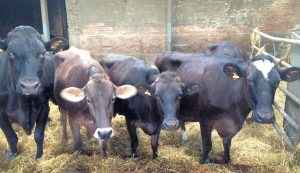
Attention to detail
The Nortons also have a close working partnership with neighbours who do their spraying. This close collaboration ensures their fertilisation and crop protection is always as well timed as possible.
Equal priority is given to the timing of sugar beet, maize harvesting and muck spreading to minimise the risk of soil damage – something which Philip is very particular about.
Similar attention to detail extends to David and Ruth’s management of the dairy herd at Church Farm. They installed of one of the first robotic milkers in the county 10 years ago, and this has been central to improvements, including increased grassland productivity and most cows giving 10-11,000 litres.
“We started cross-breeding our then black and whites to Brown Swiss and Swedish Reds to give us hardier, more durable, lower maintenance cows about 15 years ago,” David says.
“Since putting in the robot we’ve been concentrating on Brown Swiss breeding for udders that are much more suitable for the machine. The bull calves also generate a reasonable extra income while contributing to the success of the neighbouring farm, which rears and finishes them.
“Not having to milk twice a day has enabled us to devote much more time to managing the cows in general and their grazing, in particular.
“We now give them access to fresh grass every eight hours throughout the grazing season on a paddock system, using a rising plate meter to monitor grass growth every week.
“Having our own silaging kit means we have complete flexibility to shut-up paddocks and divert the grass to the clamp whenever the growth gets ahead of the cows.
“Knowing we can rely on a decent crop of forage maize is fantastic in taking the pressure off our grass silage-making so we can concentrate on quality rather than worrying about quantity.
“Having said that, renewing our pastures every 3-5 years and managing them much better these days, means we’ve been able to build-up a big surplus of forage. This is allowing us to put more land into energy maize this coming spring to increase earnings from the AD market.”
Added value from a strong brand
By developing their own direct-selling dairy brand, Nortons’ Dairy, the family have also found a way to add value to their milk and remove some of the volatility of relying on milk contracts.
It’s also allowed the next generation – Emily – to enter the business with fresh skills and perspectives. The business now employs eight people part time, and adds value to a third of the herd’s milk, with the rest on an Arla contract.
Since returning to the farm in 2006, Emily has worked with Ruth to transform the business from just selling fresh milk locally, into a thriving dairy processor marketing multiple-award winning soft cheeses and slow-matured yoghurt, cream and butter on doorstep rounds and independent retailers.
“It was only when I was studying for my Masters in Sustainable Agriculture that I began to appreciate just how sustainable our family business really was,” says Emily
“But to continue to be so and support further family members, I realised we’d have to diversify beyond the holiday, residential and commercial lets we’d also been running.
“We were producing top quality milk in a way that had particular public appeal. So instead of selling it all to Arla, we moved to a split contract to develop our own direct sales.
“With limited potential to grow the liquid market, we started soft cheese-making in 2011 after I attended a specialist course and were rewarded two gold medals in the 2012 British Cheese Awards.”
In 2016 the family added a novel pourable yoghurt to their range, and won Best in Category at the British Cheese Awards.
“We’re still small-scale but the demand we’re seeing for our offering of tasty, environmentally-sustainable dairy products from seriously pampered cows means we’ve lots of room to grow,” says Emily.
“We provide the dairy herd with an attractive milk price which has far less volatility than the external market while generating another livelihood for the family.
“Along with the robotic milker, our cheese-making is a great extra attraction for the school and group visits as part of our community involvement.
Emily’s dad, Philip adds;
“It’s good to see a farm of our size can still offer long-term sustainability for a growing family. It just shows what can be done by working closely together; ensuring that everything we do complements everything else; maintaining strong partnerships with neighbours and advisers; and having the courage and flexibility to explore and take-on new ideas and opportunities.”
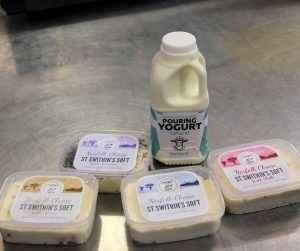
Join Our Community

Agrii X
We love engaging with clients and partners. Give us a follow and let's share stories for the community.

Agrii Instagram
A picture paints a thousand words. Follow us on Instagram to see what we are up to.

Agrii Facebook
Follow us on the worlds biggest social media site for the latest news and events straight to your feed.

Agrii LinkedIn
If you are all about the business, connect with us on LinkedIn to build your network
Stay In Touch

Journal Sign-Up
Receive email updates on topical news and information from around Agrii and UK Farming.

Listen To Our Podcasts
Listen to the Tramlines Podcast. Fortnightly chat about agriculture and trials with your host Tony Smith.

Agrii Insights
Read essential agri intelligence for profitable farming.

Find an Event
Join us for our upcoming events and tours.
